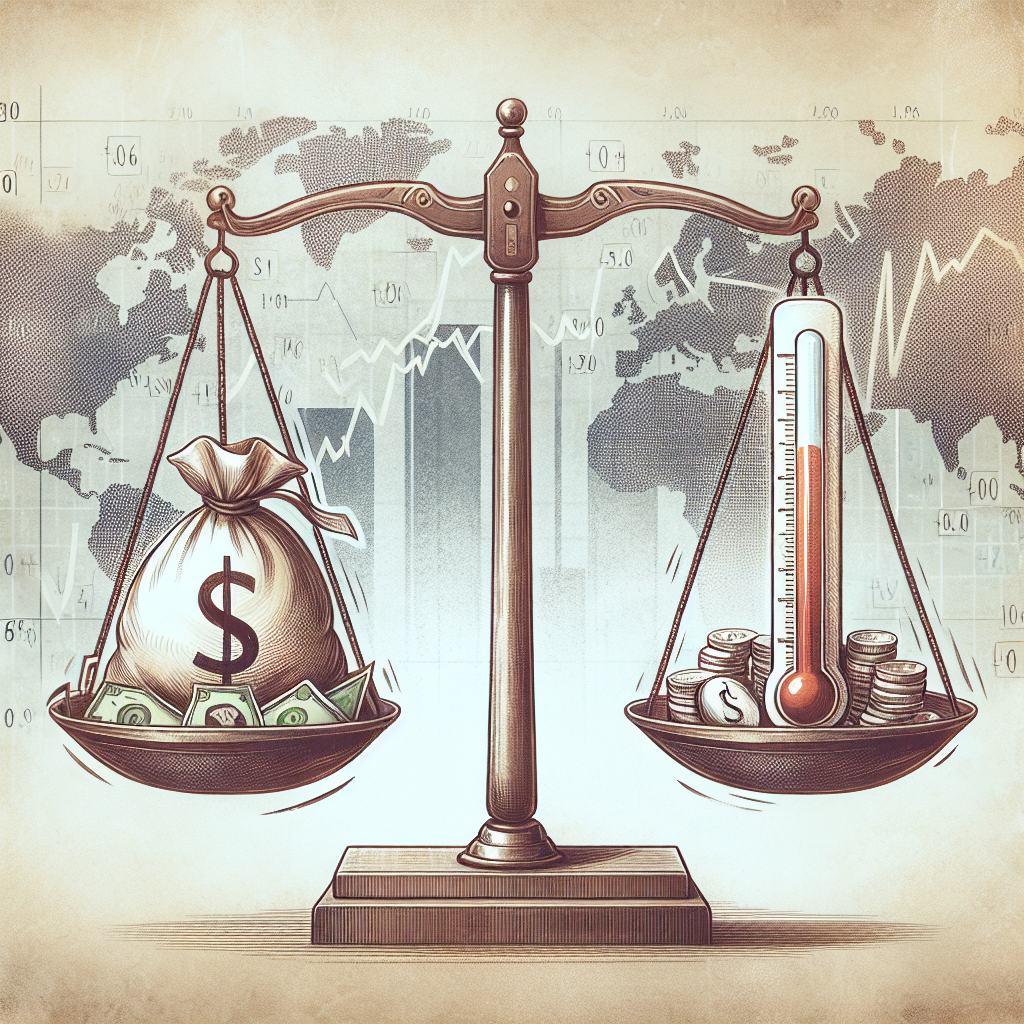Monetary policy refers to the actions taken by a country’s central bank to control the supply of money, often with the goal of achieving economic stability. One of the key objectives of monetary policy is to influence inflation, which is the rate at which the prices of goods and services rise over time. In this article, we will explore how monetary policies affect inflation and what role they play in shaping the overall economy.
Monetary policies can have a significant impact on inflation, as central banks have the ability to control the supply of money in the economy. By adjusting interest rates, open market operations, and reserve requirements, central banks can influence the amount of money available to consumers and businesses, which in turn affects the overall level of spending and demand in the economy.
One of the main ways that monetary policies can affect inflation is through changes in interest rates. When central banks raise interest rates, borrowing becomes more expensive, which can lead to a decrease in consumer spending and business investment. This reduction in spending can help to slow down inflation, as there is less demand for goods and services in the economy. On the other hand, when central banks lower interest rates, borrowing becomes cheaper, which can stimulate spending and increase demand, potentially leading to higher inflation.
In addition to changes in interest rates, central banks also use open market operations to influence inflation. Open market operations involve the buying and selling of government securities in the open market, which affects the amount of money in circulation. When central banks buy securities, they inject money into the economy, which can lead to higher inflation. Conversely, when central banks sell securities, they withdraw money from the economy, which can help to lower inflation.
Finally, central banks can also adjust reserve requirements for commercial banks, which determines the amount of money that banks are required to hold in reserves. By increasing reserve requirements, central banks can limit the amount of money that banks can lend out, which can help to control inflation. Conversely, by reducing reserve requirements, central banks can encourage banks to lend more money, which can lead to higher inflation.
Overall, monetary policies play a crucial role in shaping inflation in the economy. By adjusting interest rates, open market operations, and reserve requirements, central banks can influence the supply of money and overall level of spending in the economy, which can have a significant impact on inflation.
FAQs:
Q: How does monetary policy affect inflation?
A: Monetary policy affects inflation by controlling the supply of money in the economy. By adjusting interest rates, open market operations, and reserve requirements, central banks can influence the amount of money available to consumers and businesses, which in turn affects the overall level of spending and demand in the economy.
Q: Can monetary policy eliminate inflation completely?
A: While monetary policy can help to control inflation, it is unlikely to eliminate it completely. Inflation is influenced by a variety of factors, including supply and demand dynamics, wage growth, and external shocks. Central banks can help to manage inflation through their policy tools, but they cannot completely eliminate it.
Q: What happens if inflation remains too high?
A: If inflation remains too high, it can lead to a decrease in the purchasing power of money, as prices of goods and services continue to rise. This can erode savings and lead to lower standards of living for consumers. Central banks will typically aim to keep inflation at a moderate level to promote economic stability and growth.
In conclusion, monetary policies play a crucial role in shaping inflation in the economy. By adjusting interest rates, open market operations, and reserve requirements, central banks can influence the supply of money and overall level of spending in the economy, which can have a significant impact on inflation. Understanding how monetary policies affect inflation is essential for policymakers and economists to make informed decisions to promote economic stability and growth.
